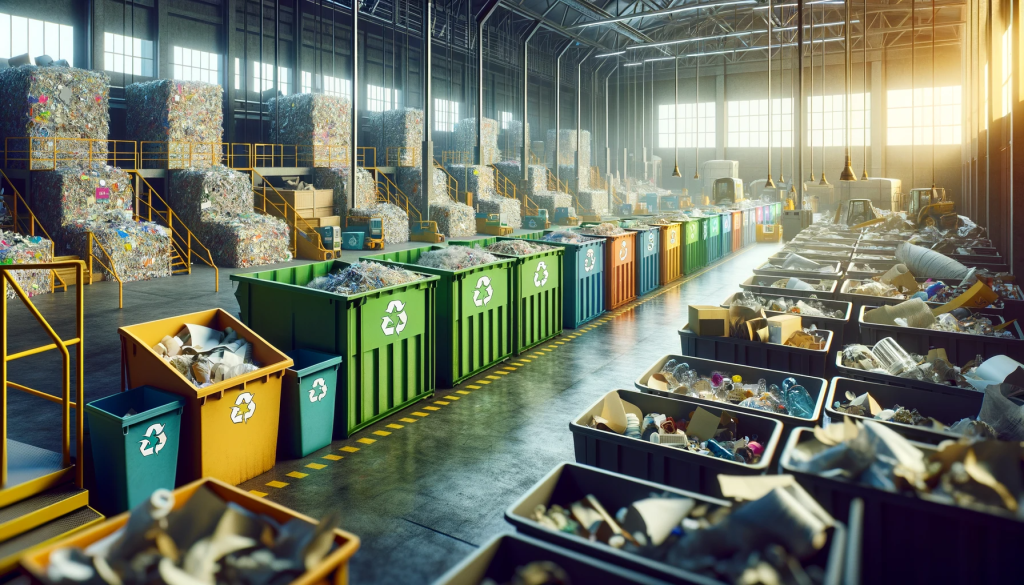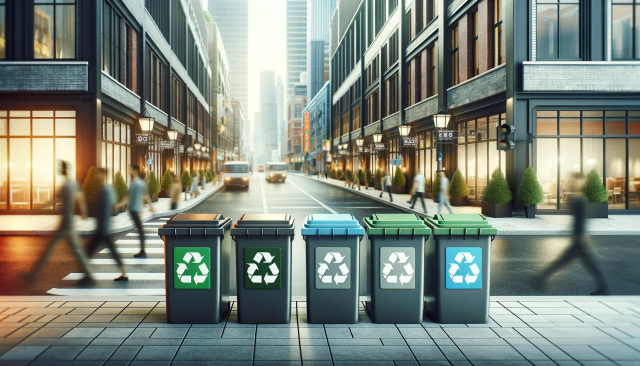Introduction
In a world grappling with environmental challenges like climate change and resource depletion, reducing our carbon footprint has become more crucial than ever. One effective way to contribute to this global effort is through recycling. It’s a process most of us are familiar with, but the extent of its impact on the planet is often underestimated. Recycling is not just about managing waste; it’s a crucial step towards a sustainable future.
Environmental Benefits of Recycling
Recycling offers numerous environmental benefits:
- Reduction in Landfill Waste: Every item recycled is one less item in our landfills. This is crucial as space in landfills is limited, and decomposing waste often releases harmful greenhouse gases.
- Conservation of Natural Resources: Recycling materials like paper, glass, and metal means less need to extract raw materials. This conserves natural resources and helps preserve wildlife habitats.
- Decrease in Greenhouse Gas Emissions: The process of recycling generally uses less energy compared to producing new products from raw materials. This leads to a significant reduction in greenhouse gas emissions, which are key contributors to climate change.
Economic Advantages of Recycling
Recycling not only benefits the environment but also offers economic advantages:

- Job Creation in the Recycling Industry: The recycling industry is labor-intensive and creates jobs at various levels, from collection to processing and repurposing materials. This contributes to economic growth and community development.
- Cost Savings from Using Recycled Materials: Manufacturing products from recycled materials often requires less energy and fewer resources compared to new materials. This leads to cost savings for businesses, which can be passed on to consumers.
How Recycling Reduces Your Carbon Footprint
Understanding the link between recycling and carbon footprint is key:
- Connection to Lower Carbon Emissions: Recycling processes typically emit fewer greenhouse gases than producing new materials. For example, recycling aluminum saves about 90% of the energy needed to make new aluminum, significantly reducing carbon emissions.
- Positive Environmental Impact: By recycling, we reduce the demand for new materials, leading to fewer carbon emissions from mining, logging, and transportation. This collective effort significantly impacts our planet’s health.
Practical Tips for Effective Recycling
To make the most of recycling efforts, consider these tips:
- Know What Can Be Recycled: Familiarize yourself with local recycling rules. Not all materials are recyclable, and some can contaminate recycling streams if not disposed of properly.
- Proper Sorting: Ensure that recyclables are clean and sorted correctly. Contamination can make an entire batch of recycling unusable.
- Reduce, Reuse, then Recycle: Prioritize reducing waste and reusing materials before recycling. This approach minimizes waste and maximizes resource efficiency.

Beyond Recycling: Reducing and Reusing
Reducing and reusing are essential components of sustainable living:
- Reducing Waste: Be mindful of your consumption habits. Opt for products with minimal packaging and choose reusable items over disposable ones.
- Reusing Materials: Before disposing of items, consider if they can be reused or repurposed. Donating, selling, or repurposing items can extend their life and reduce waste.
Conclusion
Recycling is a powerful tool in our journey towards a sustainable future. Its environmental and economic benefits are clear, and by incorporating effective recycling practices into our daily lives, we can significantly reduce our carbon footprint. Beyond recycling, adopting a mindset of reducing and reusing is vital. Every small step counts, and together, our collective actions can make a substantial difference in protecting our planet for future generations.













































